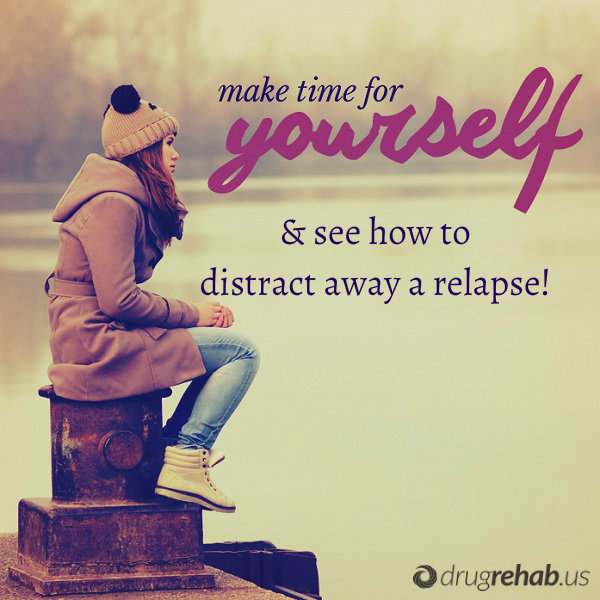How To Use Distraction To Avoid Relapse
Relapse is an inevitable part of addiction recovery for many people, but the goal is to avoid it. If you, or your loved one in recovery, can avoid using again you can avoid resetting the clock on sobriety. Not using again when you feel intense cravings or when a trigger makes you reach for a glass or a pill is difficult. It’s beyond difficult. It sometimes feels impossible.
Willpower is required, but as an addict you need what seems like an inexhaustible well of it. You need far more than most people need in everyday life. Learn from the experts on willpower.
The good news is that you can exercise it like a muscle, and part of that involves distracting yourself.
Learning About Self-Control From The Marshmallow Test
 A famous study involving willpower and self-control has shown us just how important the ability to delay gratification is. The study used children to test willpower and then tracked them later in life. The kids were given a marshmallow and told they could eat it right away or wait 15 minutes and get a second marshmallow. Each child was then left alone with the marshmallow for the 15 minutes. Those that could resist the urge to eat the marshmallow and wait to get two were much more likely to be successful later in life. They did better in school and even earned more money later.
A famous study involving willpower and self-control has shown us just how important the ability to delay gratification is. The study used children to test willpower and then tracked them later in life. The kids were given a marshmallow and told they could eat it right away or wait 15 minutes and get a second marshmallow. Each child was then left alone with the marshmallow for the 15 minutes. Those that could resist the urge to eat the marshmallow and wait to get two were much more likely to be successful later in life. They did better in school and even earned more money later.
What addicts in recovery can learn from the marshmallow test is how to have self-control in the face of the intense urge to use again. Researchers observed kids using a variety of techniques to avoid giving in to instant gratification. What came up again and again, and what other researchers have found helps to strengthen willpower, is distraction. In the face of a craving, distract yourself.
Tips On How To Distract Away A Relapse
Of course, there is a huge difference between a child drawn to a marshmallow and a recovering addict facing a bottle of vodka, but you can still use the same technique of distraction. Distraction is used in a variety of settings to improve willpower, most notably among people trying to lose weight. Their techniques and rules can help you avoid relapsing. Remember that practice and repetition are important. The more you make these distractions into habits, the easier it will be to resist your cravings.
- Choose healthy distractions – For a distraction to be successful it has to be pleasurable, but you also don’t want to develop a bad habit. Don’t use junk food or cigarettes. Whatever it is you enjoy, use it when you feel a craving. It could be a walk in the park, a musical instrument, a cup of coffee, a good book or a movie with a friend. Whatever works for you should be your distraction.
- Use your imagination – If you find yourself in a situation where you can’t get to your distraction, imagine it. Research has found that imagining a pleasurable distraction can be almost as good as having the distraction in hand. Get creative and think of anything pleasurable besides your urge to use.
- Solve a problem – Researchers have also found that engagement is as important as pleasure if a distraction is to be successful. If you have a problem to solve at work, or even just a crossword puzzle, use it as an engaging distraction.
- Plan your distractions – Don’t wait for a craving to hit, when you will be desperate for a distraction. Plan right now. What will your distractions be when you most need them? Have a variety ready to go.
As you make a habit of distracting yourself from cravings, it will become easier and easier to avoid giving in to urges. Choose healthy distractions, use them often and make a habit of not relapsing!



